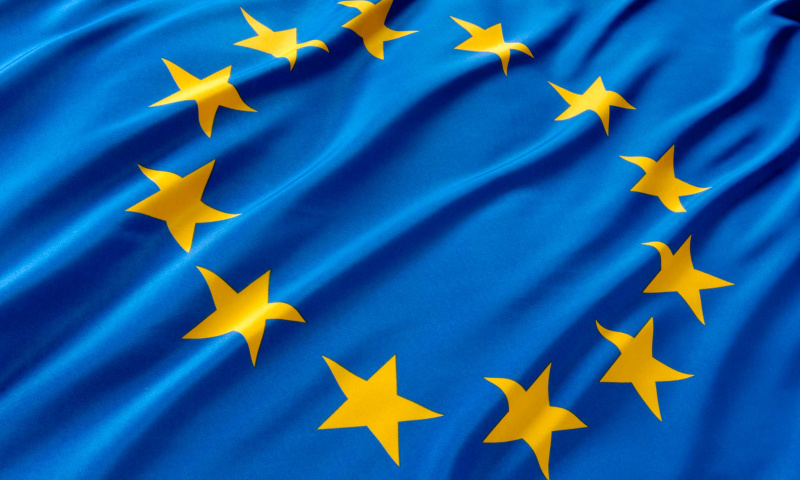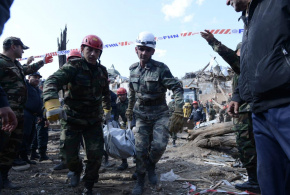
The organization of EU defense and security has a special importance at the moment. Global Europe, Strategic Autonomy, the Geopolitical Commission, the Macron Doctrine, the EU Security Council and other European development goals raise a series or complex of interrelated questions on these issues. The complexity of the organization of Europe - the number of member states with a heightened sense of sovereignty and autonomy, while at the same time relying on the Joint Force and increased capabilities are constantly competing. In this regard, it is important for the EU to finally solve this problem.
An urgent and very interesting topic now is The Strategic Compass Initiative. Articles were recently presented in the press, but they were made rather superficially and did not contain enough references to specific and reliable materials. But J. Borrell's Twitter was still listed.
The Initiative is presented only by The Strategic Compass Program, however, this includes three Initiatives at once - Strategic Compass, PESCO (Permanent Structured Cooperation) and the Coordinated Annual Report on Defense, CARD.
To form a more accurate or sufficiently informed opinion on the Strategic Compass, I reviewed the materials directly from EEAS and DGAP. If Josep Borrell's article is an official program article, then the DGAP material is a workshop with groups of leading experts from the EU and the German Ministry of Defense on Strategic Compass factors. This information has already been developed in a civil format.
This article presents translated and structured materials and author's thoughts. Article by High Representative for Foreign and Security Policy Josep Borrell (HR / VP Josep Borrell) "Defense cooperation: How strategic perseverance will pay off" and report "The EU's Strategic Compass and it’s four baskets" by DGAP (German Council on Foreign Relations).
Conclusions that can be drawn from the implementation of the EU Defense Initiatives - Defense Policy is in a state of Continuous Modernization and Improvement. The undoubted goal is the centralization of EU defense policy and strategic thinking. At the same time, the goal is the Solidarity of the Member States. The complexity of EU integration is reflected here as well. The sovereign interests of each EU member state complicate the task.
Directly Strategic Compass is an Analytical Program with Analytical Management. This system defines both the various priorities and the program's guidelines for all EU member states. The Strategic Compass should directly identify many of the objectives of the General Security and Defense Policy (CSDP) and solve them through the development of new documents and methods.
- There are approximately four baskets or Strategic Compass factors identified, but there may be more in reality.
- Capabilities of extensions for each of the baskets are indicated.
- Of the four baskets, two are more important - Crisis Management and the Sustainability Concept.
- PESCO program, projects are shown already in the article by HR/VP J. Borrell. The creation of a production and technological base is envisaged.
- The CARD report serves to bring all the components into a single system.
As a result of my consideration of the Initiative, I personally have visible fears of creating an overly complex mechanism. Experts point out that a simple and reliable mechanism is more credible. But you can review and analyze these materials.
Strategic Comрass
The program is launched. An analysis of threats across the EU was made with the participation of all military organizations of 27 states. This step was carried out by the services of the European Commission and it shows the Centralization in the field of Defense. The scope of application and validity of the review reaches 10 years.
The threats, challenges, risks:
Global
Regional
Environmental
Technological
and etc.
The Strategic Compass is expected to be adopted in 2022.
The content of the Strategic Compass Program was defined in four baskets, factors or concepts:
Anticrisis Management
Sustainability or Sustainability Concept
Development of Opportunities
Partnerships
In general, Strategic Compass is an analytical program with analytical management. This system defines both the different priorities and guidance of the Program for all EU member states. The SC should directly define many of the tasks of the General Security and Defense Policy (CSDP) and solve them through the development of new documents.
Crisis Management - missions and operations. The SC should flesh out the CSDP. The Strategic Objectives of the SC are to define the strategic objectives in the field of crisis management for the CSDP and all determinants on crisis issues. There is no doubt that this should be in the zone of consent of all EU members. The international and domestic integratively overlapping functions of various European civilian and military and transatlantic crisis management organizations need to be reviewed and organized. This also applies to various European programs - Frontex, EUFOR, PESCO.
Concept of Sustainability - the concept was developed already in the EU Global Strategy and in the field of Security and Defense has been further developed. It includes both external and internal threats and in a completely peaceful regime - climate, cybersecurity and, as we see, security in the field of medicine. This includes responding to unknown factors, energy, communication and investment factors. The principles of complementarity, different EU actors and national policies should be included. Centralizing the system should probably be more imperative.
Opportunity Development - The main focus of OD rests on the provision of resources for the CSDP Program and the goals of the Strategic Compass. It is likely that in order to understand the enhancement of CSDP capabilities, it is necessary to find factors or concepts that can have a strong reinforcing moment for both the SC and the CSDP. The consistency of all four factors is very important. Cooperation between EU institutions - Commission, EEAS, EDA (European Defense Agency), space program, digital program, industrial program and all possible programs within the EU and possibly outside. OD planning - alignment of capacity development mechanisms, plans and goals.
Partnership Relations is a strategic line of the EU, which has both internal and external aspects. A large number of partnerships, both with states and with organizations, are probably already ordinary and do not have striking, privileged properties. Plus, the constantly changing system of international relations. The conceptual rationale for European foreign policy is uncertain. Justification of foreign policy goals balances between adherence to certain international values and their own goals as a geopolitical player. The main factor of cooperation is common defense and collective security.
Permanent Structured Cooperation, PESCO
There are currently about 46 joint projects in operation since 2017. In 2020, the PESCO Strategic Review was released with results and plans until 2025. Projects cover various areas. For example:
- Cyberspace Rapid Response Teams, which will enable multiple deployment teams to respond to cyber incidents across Europe.
- European Medical Command, a multinational medical structure that will coordinate medical resources for CSDP missions and operations, as well as for NATO.
- Conventional weapon system: the EU Beyond Line of Focus (BLOS) ground combat missile, which will allow operators to deliver high-precision strikes out of line of sight using drones.
PESCO provides for the joint use of the production and technological base. Third countries are allowed to participate in the Cooperation.
Coordinated Annual Review on Defense CARD.
The report provides for the analysis and planning of the EU's defense capabilities. Currently, the complexity of EU integration is reflected in the problems of organizing the Unified Armed Forces - each state has its own types of weapons, tanks, vehicles, ships, etc.
The CARD report identifies six very specific areas for joint investment and cooperation - from main battle tank and patrol ships to counter-drone, defense in space and military mobility. It identifies over 100 specific opportunities for collaboration in capacity development, research and technology. These are opportunities for cooperation that can be continued within PESCO and potentially benefit from the European Defense Fund.
Dimash K. Abdullin



















 "Atomic" exam for officials of Kazakhstan
"Atomic" exam for officials of Kazakhstan
 Attack on Ganja: The Azerbaijani Embassy in Kazakhstan issued a statement
Attack on Ganja: The Azerbaijani Embassy in Kazakhstan issued a statement
 A 19-year-old student from Kazakhstan has been arrested in Hong Kong
A 19-year-old student from Kazakhstan has been arrested in Hong Kong
 Dimash to perform in New York and Prague
Dimash to perform in New York and Prague
 K. Tokayev sends condolences to President of Pakistan Arif Alvi
K. Tokayev sends condolences to President of Pakistan Arif Alvi
 The first Japanese hotel to be built in Uzbekistan
The first Japanese hotel to be built in Uzbekistan